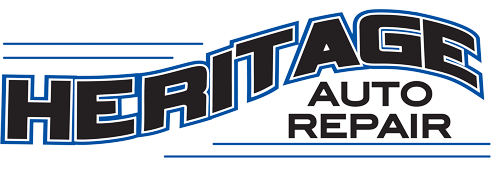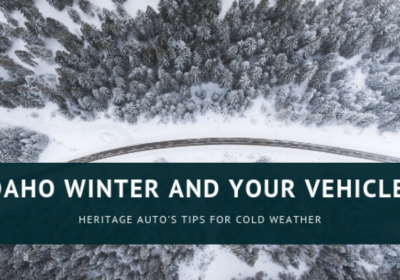The brilliant colors of a Treasure Valley fall are breathtaking. An Idaho fall is a great season to enjoy the outdoors for nature-related activities such as mountain biking, hiking, canoeing, and mountaineering.
You will be driving often to fall activities such as bird watching and stargazing. Throw in the lure of Boise State, University of Idaho and other football games. Road trips will be popular. And even simple commuting down Interstate 84 can really take a toll on your car.
Temperatures continue to be warm to hot, and this presents challenges to personal transportation and maintenance. But with a few basic precautions can help fall trips be ones we can all enjoy. You need to make sure your car is up to the task. This matters even more if it has not been properly maintained. Heat followed by sudden drops in temperature, flurries of dust and dirt, and occasional rain can all adversely affect vehicle’s most important systems.
At Heritage Auto Repair, their experts are called on by many drivers after they were either stranded or had car trouble this summer. AAA reports that four out of every 10 drivers aren’t prepared for vehicle breakdowns. Heritage Auto Repair educates consumers on the importance of taking care of their vehicle. Their certified technicians want to let you in on a secret: many motorists can avoid being stranded simply by having a vehicle inspection before you take off.
In this case, you can avoid the inconvenience and costs of a roadside breakdown by taking a few proactive steps. Start by following Heritage Auto Repair’s pre-road trip auto care steps to help keep your travels safe and trouble free.
1 – Check Your Brakes.
Brakes are the single most important safety system on your vehicle. Have you ever heard a high-pitched screeching sound when you applied your brakes? That’s a small metal shim, called an indicator, which is giving you an audible warning that you need to replace your brake pads. If you hear this regularly, quickly make an appointment with Heritage Auto Repair.
Have your brakes inspected for wear and fluid leaks at every oil change, and whenever there are signs of a potential problem. Pay attention to your vehicle’s electronic indicators, or any grinding or scraping noises when applying the brakes. Worn out brakes or brake system hydraulic pressure loss require immediate attention.
When your vehicle requires maintenance or repair, trust Heritage Auto Repair to provide courteous and professional service. Visit 175 N Linder Rd. Meridian, Idaho, ID 83642 or call (208) 887-1442.
2 – Check Your Tires.
Underinflated tires impact the handling, braking, and fuel economy of your vehicle. Check pressures at least once a month when tires have been at rest and are not hot. Inflate tires to the vehicle manufacturer’s recommended pressure listed in the owner’s manual or on the driver-side door jamb, and not to the number molded into the tire’s sidewall. Inspect tires for cuts, gouges, or sidewall bulges.
At Heritage Auto Repair, their trained techs will also check tread wear. You may want to have your wheels rotated and aligned before a trip. Or you may want to have your tires replaced. If you find too much damage, it’s time for new tires. Uneven wear across tire treads can indicate inflation, suspension, or wheel alignment issues.
3 – Check Your Battery.
Cold chills can do in car batteries, and excessive heat also shortens their life. Batteries normally last around three to five years, but they normally do not show any symptoms before they die. So, if yours is close to three years old or older, it’s important to periodically have it tested, especially before a road trip.
4 – Check Your Fluids.
Oil, engine coolant, brake, transmission, and power steering fluids are the lifeblood of your vehicle. They keep it running as it should. Your owner’s manual should give you some insight into when each one typically needs to be changed. Check your vehicle’s engine oil level monthly. Most newer engines require semi- or full-synthetic oil to properly protect the engine and maintain the vehicle warranty. Fluid levels must be correct for safe vehicle operation.
Heritage Auto Repair technicians will use a product that meets the specifications listed in the vehicle’s owner’s manual. Newer car models may have sealed automatic transmissions without a dipstick, and electric power steering that may not use fluid.
5 – Check Your Wipers Washers and Lights.
Your windshield wipers and the various lights inside and out are critical to your ability to operate your vehicle safely. Rubber components naturally deteriorate over time so wiper blades require periodic replacement. You need to be able to see, and other drivers need to be able to see you. Replace any broken lights and worn wiper blades before starting your trip.
Keep the windshield washer fluid reservoir topped up with a solution formulated to remove insects and other debris. Test the washer spray nozzles for proper operation and aim before leaving on a road trip.
6 – Check Your Belts and Hoses.
Reinforced rubber drive belts power the engine water pump and various accessories such as the alternator and air conditioning compressor. Inspect the belts and replace any that are cracked, glazed, or frayed. Note that many modern multi-rib or drive belt materials do not show easily visible signs of wear. As a general rule, replace drive belts every 60,000 miles. Rubber hoses carry various fluids in the engine compartment. Inspect and replace any leaking or damaged hoses. Replace worn, brittle, bulging, or excessively soft radiator hoses. Check for leaks around hose clamps and at the radiator and water pump.
7 – Check Your Climate Systems.
Before your trip, you don’t want to be faced with driving your vehicle around with the windows down. It brings little relief from the Idaho elements. Heritage Auto Repair can help you get the system functioning again. Auto air conditioning systems do not require routine maintenance, but should be checked if there’s a decrease in cooling capability. Some climate control systems are equipped with cabin filters that capture dust and pollen inside the vehicle. These filters typically need replaced once a year. Not changing this filter could result in odors or reduced performance of your climate control system.
Driving with an improperly working heater isn’t fun or safe either. Driving with fogged-up windows is an accident waiting to happen. Check front and rear window defrosters to ensure proper working condition. If necessary, have heater and defroster systems repaired.
Finally, Heritage Auto Repair recommends keeping an emergency kit with a flashlight and extra batteries, first-aid supplies, drinking water, non-perishable snacks for your travelers and pets, battery booster cables, and emergency flares or reflectors in your vehicle. Add also a rain poncho, basic tool kit, duct tape, gloves, and shop rags or paper towels.




